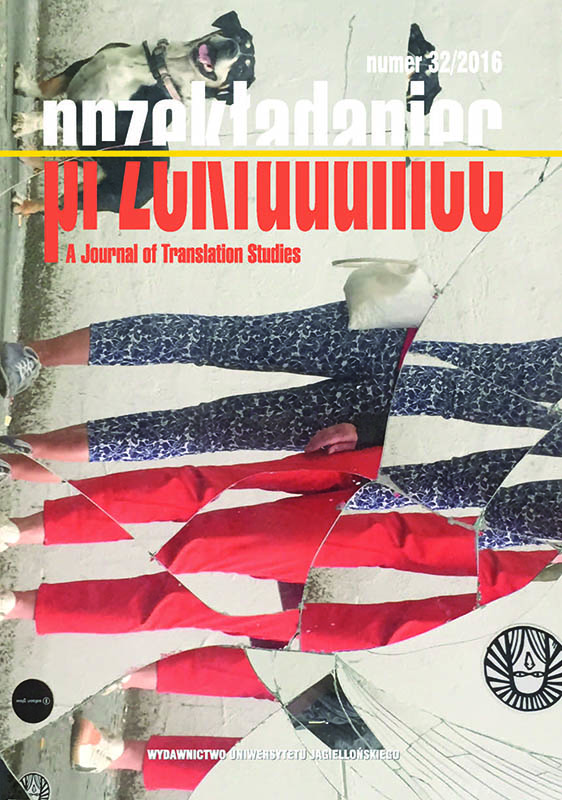„Zmartwychwstanie śmieciarzy”. Interakcjonizm symboliczny i narracyjne trajektorie biograficzne w tekstach polskich migrantów przebywających w Wielkiej Brytanii i Irlandii po roku 2004
“Resurrection of the Dustmen”: Symbolic Interactionism and Narrative Biographical Trajectories in the Texts by Polish Migrants in Great Britain and Ireland after 2004
Author(s): Joanna ŚlósarskaSubject(s): Translation Studies
Published by: Wydawnictwo Uniwersytetu Jagiellońskiego
Keywords: migration; Polish migration; self-narration; identity, Symbolic Interactionism
Summary/Abstract: The paper contains problematic analysis of selected literary texts from the period 2004–2012, typical of a larger corpus of works created by Polish migrants. Narratives, plots and lyrical monologues are regarded from the perspective of symbolic communication (Blumer), representing the dynamics of biographical trajectories (Schütze). The theses are formulated here in the initial conceptualization of critical situations in which Polish migrants operate. These situations are determined by such processes as: 1) forced falsification of social roles in the new professional environment and, consequently, the need for a redefinition of self- and community identity; 2) communication barriers related to the lack of sufficient language competence; 3) lack or loss of means of subsistence and strategies for acquiring material goods; 4) separation from the beloved ones, loss of emotional support, and therefore a strong focus on reconstruction of emotional ties; 5) the need to respect and understand cultural differences in a multi-ethnic space. Critical situations portrayed in the narratives, leading to allocation in the world, are presented by Polish authors in both aspects: the positive one (discovery of new opportunities, departure, change of language) and the negative one (loss of the sense of security, livelihood, family, friends). In the narratives, the choice between various modes of action is interpreted in the pragmatic context, reduced to the effectiveness of the fight for survival, but with the observance of the limits shaped as a defence of axiological individual identity, especially of pride, honour and dignity. The primary function of the self-narration used by Polish migrants is to reconstruct personal identity in the figure of the speaking subject. Self-narration is analysed in the paper as a form of organization of experience, a symbolic recreation of the order of existence when faced with a stream of chaotic, destructive events. Underlined are the action schemes characteristic of the texts of Polish migrants that represent the transition from transactional, investment concepts of biography to formulation of the project of transformational, creative and subjectified biography.
Journal: Przekładaniec.
- Issue Year: 2016
- Issue No: 32
- Page Range: 163-175
- Page Count: 13
- Language: Polish

